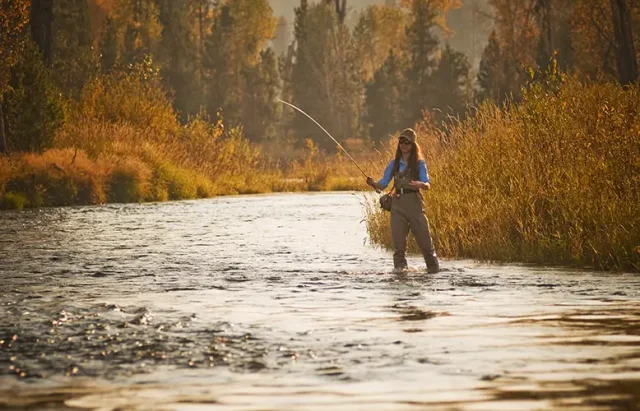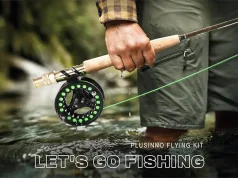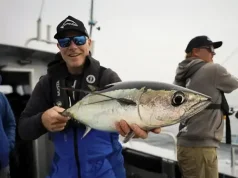
Fishing is an activity that combines relaxation and adventure. Whether you are by a calm lake, a rushing river, or in the ocean waves, fishing can be refreshing. It allows you to connect with nature, enjoy some quiet time alone, or make lasting memories with family and friends. With some preparation, anyone can enjoy fishing and have a successful outing.
Getting the right gear is key to having a good fishing experience. It’s also important to know the different types of fishing. Tailoring your approach based on where you fish can help you have a productive day on the water.
Here’s a guide on how to go fishing in the outdoors.
Gear Essentials
Before you go fishing, gather the right gear. Your fishing rod is your primary tool, so choose one that fits your style. Spinning rods are versatile and great for beginners. Baitcasting rods are better suited for those with more skill, as they allow for greater accuracy. Make sure to match your reel with your rod type for the best experience.
Tackle is also important. This includes hooks, weights, lures, and fishing lines. Having the right tackle made for your target species can make a big difference. Think about the habitat you will fish in. Freshwater and saltwater each have specific needs, so prepare yourself accordingly.
Fishing Rods
Fly fishing is a unique style of fishing. Fly fishing rods can help you cast bait or lures with precision. These rods are light, longer, and more flexible than regular rods, giving you an exceptional experience on the water. Casting a fly rod requires skill and can feel like a dance, connecting you to the environment.
Fly fishing rods excel at accurately casting lightweight flies. This precision helps when targeting fish like trout and bass. As you gain more skill, you can try different techniques and flies, which enables you to learn more about the water and its fish. The mix of art and patience in fly fishing helps you appreciate nature, making each trip memorable.
Location
Choosing where to fish is as important as what gear you use. Research local lakes, rivers, and seas to find out which fish live there and the best times to fish. Check local fishing reports for productive spots and find out which bait works best.
If you visit a new area, ask other anglers for tips. They might share their favourite spots or advice on what works well in different weather. Whether fishing from a boat or shore, finding the right location can increase your chances of catching fish.
Bait and Lures
Choosing the right bait or lure is important for catching fish. Use natural baits like worms, minnows, or insects for freshwater fishing. For other species, try artificial lures like spinners, jigs, or crankbaits. Each bait or lure works differently, so learning about fish behaviour can help you pick the best option.
It’s a good idea to experiment with different colours, shapes, and sizes. Visit to the best fishing stores to go shopping for bait and lure. Pay attention to what works in your fishing spot and make changes as needed. Sometimes, switching your lure can lead to better results. Being flexible with your approach turns each fishing trip into a learning experience.
Safety and Environment
Safety is key while fishing. Always wear a life jacket on a boat and stay aware of your surroundings, especially in new waters. Protect yourself from the sun with sunscreen and keep bugs away with insect repellent. Bring a first-aid kit for minor injuries.
Respecting the environment is equally important. Follow local fishing rules and consider catch-and-release practices when needed to promote sustainable fishing. Always clean up after yourself to keep nature beautiful for everyone.
Techniques for Success
Learning different fishing techniques can help you catch more fish. Begin by mastering basic skills such as casting, retrieving, and setting the hook. Each fishing style, such as fly fishing, has its own techniques that you can improve with practice.
For example, in fly fishing, focus on your casting. How you present the fly can attract fish. Practice your timing to ensure your line lands softly on the water, mimicking the natural movement of insects. In spinning or bait casting, knowing how to retrieve your lure can draw in fish. Experiment with different speeds and movements to see what excites the fish in your area.
Also, pay attention to the water conditions, weather, and fish behaviour. Being flexible can enhance your technique and make your fishing experience more enjoyable.
Fishing Etiquette
Good fishing etiquette is key for everyone’s enjoyment on the water. Be polite to other anglers by keeping a respectful distance and not crowding them in popular spots. If you see someone fishing, give them space to cast and reel in their catch.
Always ask for permission before fishing on private property, and follow any posted signs. When you catch fish, obey local rules about size limits and catch limits, and only keep what you need.





